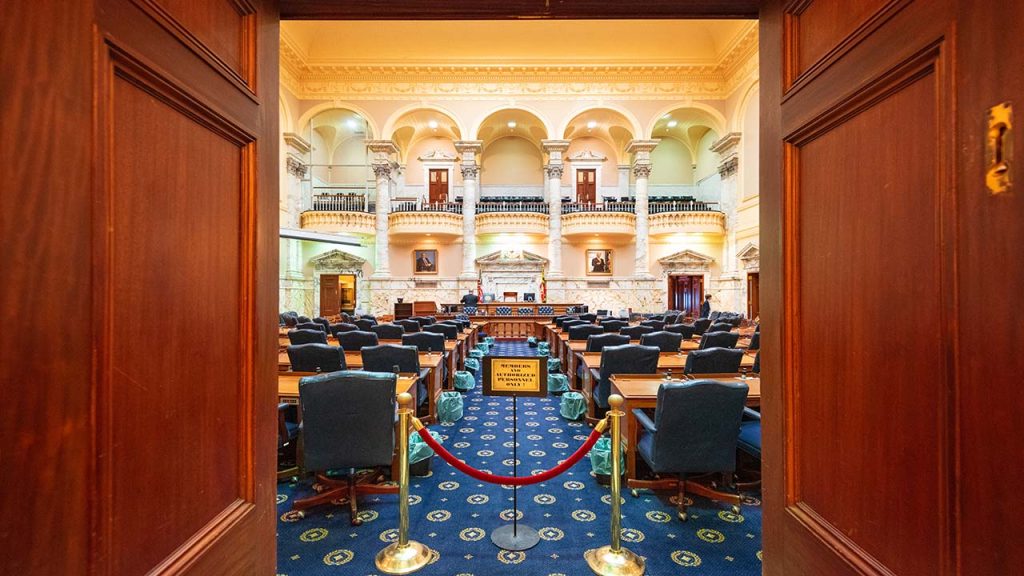
Online Training Program to Boost Number of Principals of Color Expands
An online leadership-preparation program aimed at boosting the number of school leaders of color and those focused on equity is expanding in the Northeast.
The Bank Street College of Education will be the first non-historically Black higher education institution to offer the fully online fellowship for aspiring school leaders, which launched last year at two historically Black institutions, Morehouse College and Clark Atlanta University, both located in Atlanta. The program is run by New Leaders, which trains school leaders to work in mostly urban districts and schools serving large numbers of students of color.
Like Clark Atlanta and Morehouse, Bank Street educators had a major role in developing the program’s curriculum. Among the changes for the Bank Street fellowship, the program was revised to emphasize adult development, fieldwork, and supervision, and to meet New York state standards, the college said.
“In particular, just as teachers need to understand child development, Bank Street’s approach to leadership preparation includes teaching aspiring principals about how adult educators learn and grow,” Shael Polakow-Suransky, the university’s president and a former deputy chancellor in New York City public schools, said in an email.
The partnership aligns with the college’s philosophy and commitment to preparing more leaders of color.
“School leadership is the most powerful lever available to improve the quality of schools,” Polakow-Suransky said. “At Bank Street, we believe that schools must meet the needs of the whole child to support both their academic development and social and emotional growth.”
A focus on equity
The program is geared toward training would-be principals to focus on equity and addressing the longstanding mismatch between the racial makeup of education leadership and students attending public schools. While students of color comprise the majority of public school students nationwide, nearly 80 percent of principals are white.
In the 2021-22 school year, about 22 percent of teachers in New York state were people of color, compared to about 60 percent of students, according to the Education Trust-New York.
The program will include two options for aspiring school leaders, who can include teachers, academic deans, and assistant principals. Fellows can gain a principal certification or a master’s degree, depending on the track they complete.
The master’s program will cost $25,000 annually, while the principal certification program will cost $20,000. New Leaders provides $5,000 in scholarships to all the fellows.
The New York cohort is expected to start in September with 50 fellows and grow to 150 fellows a year, according to New Leaders.
Leaderhip programs need updating
Leadership preparation programs—both those offered online and at brick-and-mortar institutions—have faced criticism for not always adequately preparing school leaders for the day-to-day responsibilities and challenges they’ll face in schools.
High-quality leadership preparation programs include a strict selection process for applicants, partnerships with school districts, and clinical experiences that allow would-be principals to gain firsthand experience in the kind of work they’ll engage in as school leaders.
Online programs tend to offer broader access to educators from historically underrepresented groups and those who live in geographically remote areas, though they are of varying quality.
The first class of 20 fellows, from New Leaders’ partnership with Clark Atlanta and Morehouse, graduated this spring.
Jeffrey Monroe is one of them. He described the program as professionally and personally “transformational” in how he sees and engages with students and colleagues.
“The way that I just go about doing the work and the ‘why’ around the work have completely shifted,” said Monroe, a chemistry teacher at Hollis F. Price Middle College in Memphis, Tenn., said in a recent interview. “Sso much so [that] many of my colleagues who have seen the transformation have wondered what all of this is about.”
A course on education policy addressed historical inequities and how those legacies persist today, gave him and fellow educators a deeper understanding of the current education landscape, Monroe said. Another on school culture helped Monroe to “develop what it means to be an asset-minded educator, who understands the importance of culturally relevant instruction, access, equity, and instructional excellence.”
Then, Monroe said he was able to use in real time the instructional practices he was learning, such as analyzing student work to ensure it aligned with standards, using formative assessments to identify students who were struggling, and developing action plans to help those students.
As part of his capstone project on equity, specifically focused on Black boys, Monroe led equity-focused staff professional development.
“A lot of their feedback was that, ‘You made our PDs a safe space for us to talk about really difficult subjects around racial identity, around equitable instruction, what academic excellence should look like, and what we should require from ourselves for improving the student experience at school,’ ” Monroe said.
Though he’d first like to work as an assistant principal, Monroe said he’s confident he’d be an effective principal if he gets the job now.
“I am more prepared than I have ever been for sure,” Monroe said. “ … It helped to make my ‘why’ around why I do this work clearer, and it has helped me root all of my instructional practices and my lens for education in instructional equity and academic excellence.”
Dig Deeper With Our Longreads
Newsletter Sign up to get our best longform features, investigations, and thought-provoking essays, in your inbox every Sunday.
The MEN was founded by John Huber in the fall of 2020. It was founded to provide a platform for expert opinion and commentary on current issues that directly or indirectly affect education. All opinions are valued and accepted providing they are expressed in a professional manner. The Maryland Education Network consists of Blogs, Videos, and other interaction among the K-12 community.








